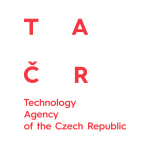Leader of consortium:
Institute of Microbiology, ASCR, v.v.i.
Members of the consortium:
Palacky University Olomouc; Technical University of Liberec; DEKONTA Plc.
Person responsible:
Doc. RNDr. Tomáš Cajthaml, Ph.D.
Description:
Proper use of analytical methods is an essential prerequisite for correct evaluation of effectiveness of decontamination methods. The project monitors large group of pollutants found in various environmental matrices. Due to different characteristics of various groups of pollutants and matrices, individual cases often require specific approaches to use analytical strategies. This aspect is particularly evident in case of new emerging types of contaminants from substances for personal use and various additives so called endocrine disruptors and pharmaceuticals as well. These compounds are biologically active and therefore dangerous even in very low concentrations, in which they are located in the environment. Analytical systems must be set correctly to such often ultra-trace analysis. Another difficulty is their chemical diversity representing agents with different polarities, molecular weights and functional groups. WP6 is supporting work package for identification and optimization of new methods for detection of pollutants, study of ecotoxicity, and monitoring of nanomaterials in the environment.
The development of methodical approches to determine endocrine-active compounds in environmental samples is based mainly on use of modern chromatographic methods in combination with mass spectrometry (HPLC-MS/MS, GC-MS). Study of potential ecotoxicity and migratory ability of new types of nanoparticles is studied mainly on products of the work packages 1 to 5. Important part is evaluation of behavior of nanoparticles in different environments, including water, soil, sludge or waste water. As model organisms for ecotoxicological evaluation are chosen different strains of soil types or specific bacteria and cultures of cyanobacteria and algae. On the development of analytical methods and ecotoxicology tests of endocrine activity of organic pollutants is primarily involved MBU and DEKONTA that test the optimized procedures on real samples and during remediation experiments. UPOL and TUL look after the field of ecotoxicology of nanomaterials and monitoring of their migration. The industrial partners of the project use the results of this package to characterize the developed products.
Outputs:
- Development and optimization of methods to detect activity of endocrine disruptors and their applications using decontamination technologies.
- Development and verification of monitoring technology of migration and determination of ecotoxicity of nanomaterials in rock mass.


